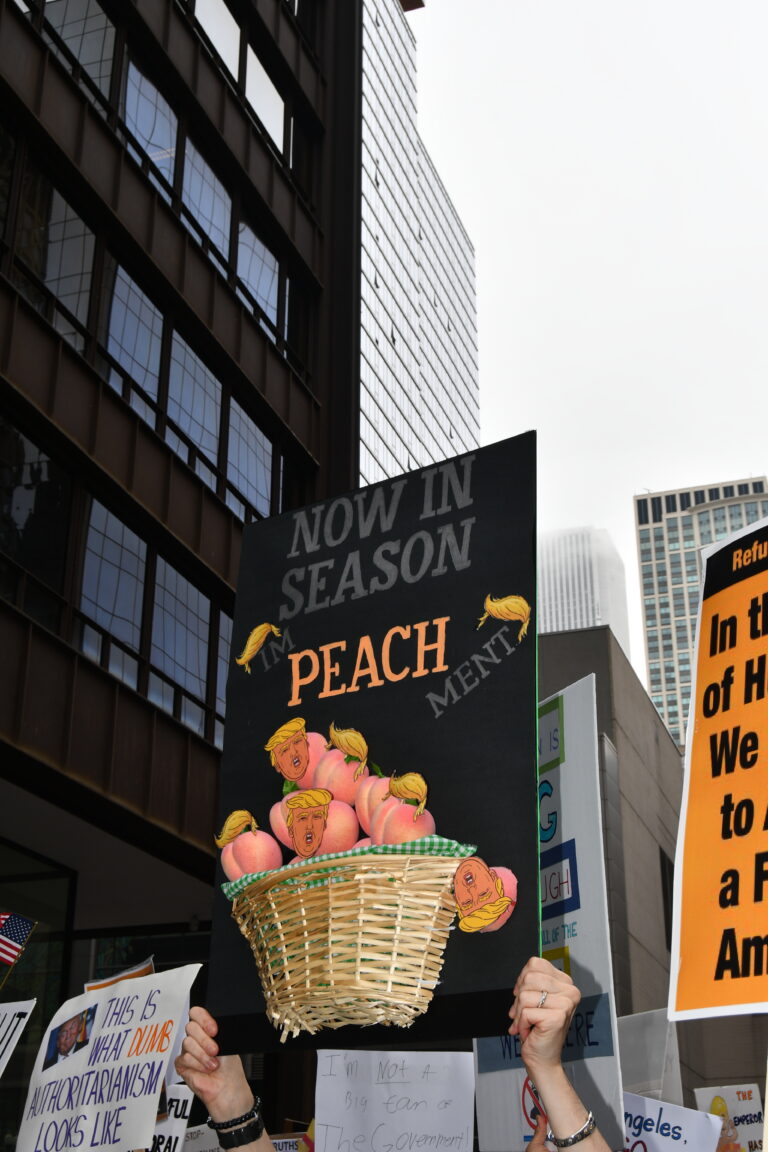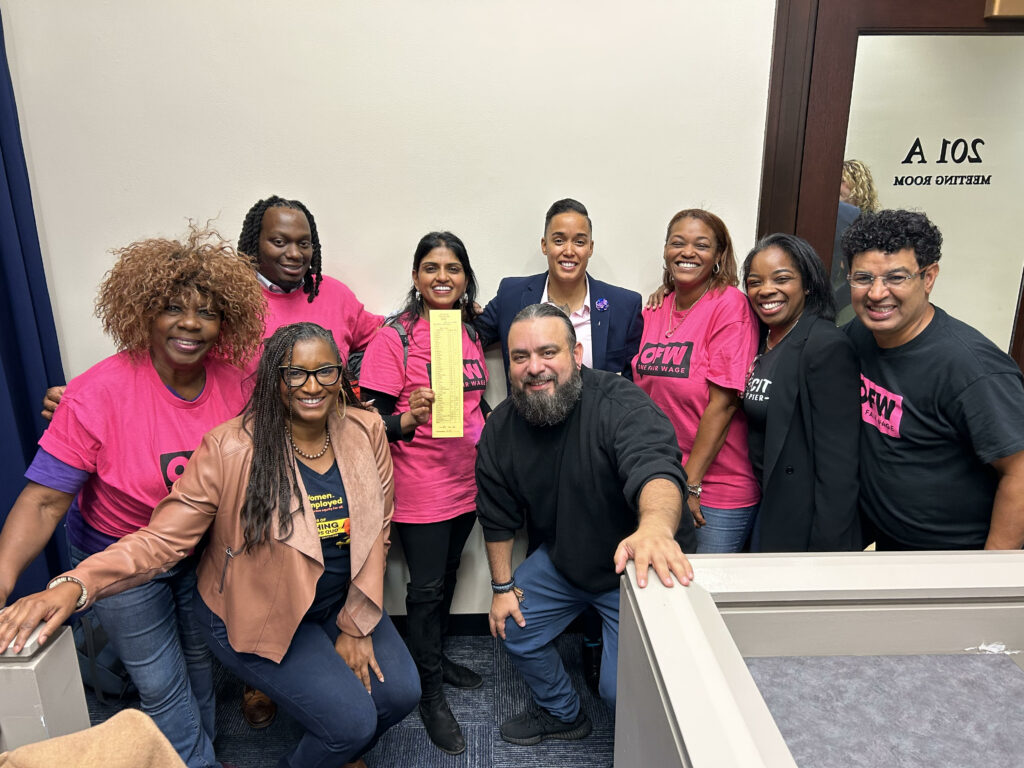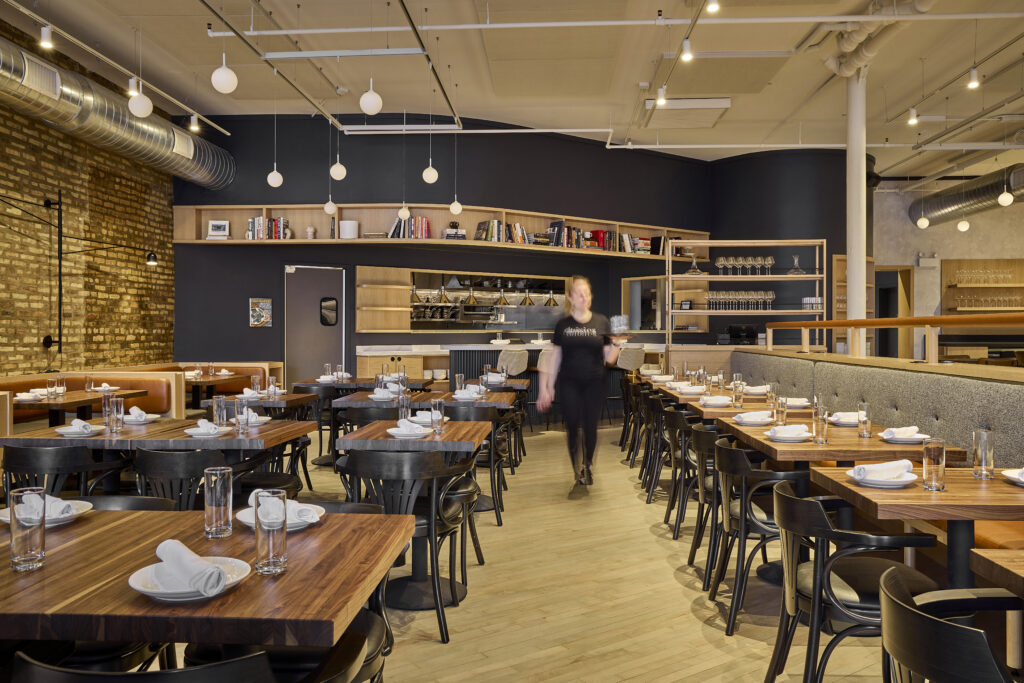
Modeling the End of Subminimum Wage for Chicago’s Tipped Workers
Tipping’s nearly 180-year legacy in the United States is coming to an end — at least in Chicago. The city joins Los Angeles as one of two U.S. cities to do away with subminimum wages, as well as seven states. On October 6, 2023, the Chicago City Council passed the One Fair Wage ordinance, kicking off a five-year transition to phase out subminimum wages for tipped workers.

The Fair Labor Standards Act of 1938—the same federal law that outlawed child labor and created the right to a minimum wage—allows employers to pay subminimum wages to employees who receive tips, so long as they earn at least the standard minimum wage once tips are added in.
Compensation for tipped workers can vary wildly due to the type of restaurant, the nature of the shift, or the whims of the patrons. A 2020 report conducted by One Fair Wage found that more than 80% of tipped workers saw a decline in tips during the early months of the pandemic, while more than 40% reported an increase in sexual harassment from customers.
The practice also has explicit ties to slavery. After abolition, Black Americans primarily had access to jobs as hospitality workers, or worked as sharecroppers. Many employers would not pay service workers under the condition that guests would offer a small tip instead.
Starting July 1, 2024, Chicago’s tipped workers “such as restaurant servers, bartenders, bussers and runners” who currently earn a subminimum wage of $9.48 per hour will see their wages increase by 8 percent per year until it reaches Chicago’s standard minimum wage of $15.80 in 2028,” according to the Mayor’s press office.
Daisies
Well before the ordinance passed this fall, some Chicago restaurants were already experimenting with more equitable pay structures. Daisies, a “vegetable-driven and pasta-focused” restaurant in Logan Square, implemented a 25% service charge for dine-in customers in 2020 that enabled them to raise every employee’s wage above the standard minimum wage.
Prior to the pandemic, Daisies had a 5% service charge that helped the restaurant pay for employee’s healthcare. In 2020, their business model changed dramatically in response to pandemic shutdowns, reorienting workers towards executing takeout orders and operating the local grocery and ready-to-eat market created inside the restaurant. “We were left with a lot of management and a lot of kitchen people who typically are not able, by law, to participate in tips,” said Executive Chef and Co-Owner, Joe Frillman.

Legally, tips cannot be redistributed to managers and until the Fair Labor Standards Act was amended in 2018, tip pools also could not benefit kitchen or back of house staff. In many cases, tip pools still exclude back of house workers. “We needed another way to distribute this money to the people who were actually in the building,” said Frillman.
Five percent of Daisies’ 25% service charge is reserved by ownership to pay for employee benefits including healthcare, paid time off, and 401(k). After that, the server retains the majority of the service charge and the remainder is allocated to other front and back of house positions.
“The model’s been embraced by kind of everybody. Yeah, we are taking some of the servers’ ‘tips,’ if you will, and redistributing them, but they also get paid a higher hourly wage—so it should compensate and help them get back to where they were previously, if not more,” said Frillman. He continued that compensation for servers ranges from $40-65 per hour which matches pre-pandemic wage ranges.
Frillman cites their compensation model as a possible reason why Daisies never experienced a staffing shortage, even during the worst of the labor shortage that’s been plaguing the restaurant industry over the last few years. Daisies’ service charge is only in effect for dine-in dinner service, and it essentially guarantees a 20% gratuity per table. Frillman says the policy helps them avoid situations where “the guest is essentially punishing whoever’s working for various circumstances that sometimes might just not be within their control.”

The restaurant industry is infamous for its already razor-thin margins, and many detractors of the One Fair Wage legislation are citing concerns around the feasibility of this change for business owners. Frillman noted, “Technically, it costs the business more money up front. But for us, we’ve seen dividends in terms of staff retention, job security, satisfaction, etc. We still have a handful of people who have been with us since day one, and we’re on year seven.”
Restaurants are also highly vulnerable to price sensitivity from customers, and educating guests about what service charges mean has been an uphill battle. According to Frillman, while guest feedback was “overwhelmingly positive,” some guests were initially dismayed by what they perceived as a ‘secret fee’ being attached to their bill. “What we’ve realized is we have to be extremely up front,” Frillman explained..
To ward off any surprises at the end of a meal, Daisies works to get the information to customers ahead of time–in part, via an explainer that pops up on their website and a tabletop card dropped by servers alongside the menus. When guests reserve a table online, they must check a box indicating they understand and accept the service fee.
Of course, Chicago diners are admittedly facing a scattered landscape—making it difficult to understand the true cost of dining out. Prior to the One Fair Wage legislation taking effect, higher menu prices or unfamiliar service charges may deter diners from a restaurant like Daisies trying to add a little more protection around its workers’ wages. As Frillman remarked, “The retort to us commonly is, ‘Why don’t you just raise the price of everything by 25%?’ What it comes down to is this: Until the entire industry is regulated in some way, we’re going to continue to apply the service charge.”
Middle Brow
Meanwhile, Middle Brow — another Logan Square spot that specializes in pizza, bread, beer, and now natural wine — has been doing its own experimenting regarding compensation. When Middle Brow opened in 2019, the business started with a traditional tipped minimum wage of $6.25 per hour, instituted a tip pool that was distributed equally to all front of house workers, and charged a 4% hospitality fee. This structure helped pay back of house workers a base wage of $15 per hour and a bonus of $2-3 per hour every week.

Co-owner Peter Ternes said the gap in pay between front of house and back of house workers was part of what motivated them to change their compensation model in 2020. Similarly to Daisies, Middle Brow found that as the nature of work shifted during the early months of the pandemic (as their business shifted to focus on takeout and grocery pre-orders),the distinctions between front and back of house blurred. In an effort to pay back of house workers—who were not originally included in the tip pool—more equitably, they raised the minimum wage for all workers to $20 per hour. This increase was facilitated by a 20% service charge.
However in April 2022, Middle Brow reverted to the tipped minimum wage due to challenges filling high-need shifts. After doing away with the tipped minimum wage, Ternes found “there was no incentive to work the weekends. This left the busiest shifts the worst staffed, and that just crushed the management team.”
“One thing that got lost in all of this is [the understanding] that managers are staff too,” Ternes commented. “So we said we need to change the model again and re-incentivize nights and weekends so that the management doesn’t feel so isolated, and they don’t have to struggle to make these really busy shifts work.”
After returning to the tipped minimum wage, Middle Brow lowered its service fee to 8% and is using that fee to maintain higher wages for back of house workers, who are now earning $22-25 per hour. The shift back to tipped minimum wages “worked, frankly,” according to Ternes. “Our back of house pay stayed really high; our front of house pay went up, and everyone wants to work Friday, Saturday, and Sunday now,” he said.
Advocates for ending tipped wages argue the policy opens up the door for discrimination. And research backs that claim up.Studies show Black workers are tipped less than white workers. While Daisies no longer accepts requests to remove the service charge unless there’s a clear issue with service, prior to this shift Frillman said they found “a pattern of some of our most experienced individuals being requested to remove these charges more so than their counterparts. And the only difference between those individuals happened to be gender and race.”
During its 20% service charge era, Middle Brow advertised on its menus and website that it had “abolished” tipping. The word choice was an intentional one, as Ternes sees tipping as “absolutely a vestige of slavery.” What does it mean, then, when the restaurant that “abolished” tipping, well, un-abolishes it?
To that end, Ternes remarked, “We tried to do away with [tipping], and it was good for a little while, but it ended up hurting women and people of color and LGBTQ folks who needed us to stop that harm,” referring to managers impacted by front of house staff’s reluctance to claim night and weekend shifts when the tip incentive disappeared. “This tipping thing is bad, but if you try to get rid of it yourself, you risk hurting people more,” he continued. “The state needed to step in, and the big players in the restaurant industry needed to step in, and I’m glad they finally did because now with their support, we can finally make a shift in the entire industry and start to actually chip away at this pretty ugly model.”
—
For More Information:
One Fair Wage Campaign: Stay updated on the latest developments and actions by visiting www.onefairwage.com
Chicago City Council: For details on the City Council’s decision and related discussions, visit https://www.chicago.gov/city/en/depts/mayor/press_room/press_releases/2023/october/one-fair-wage-approved.html


